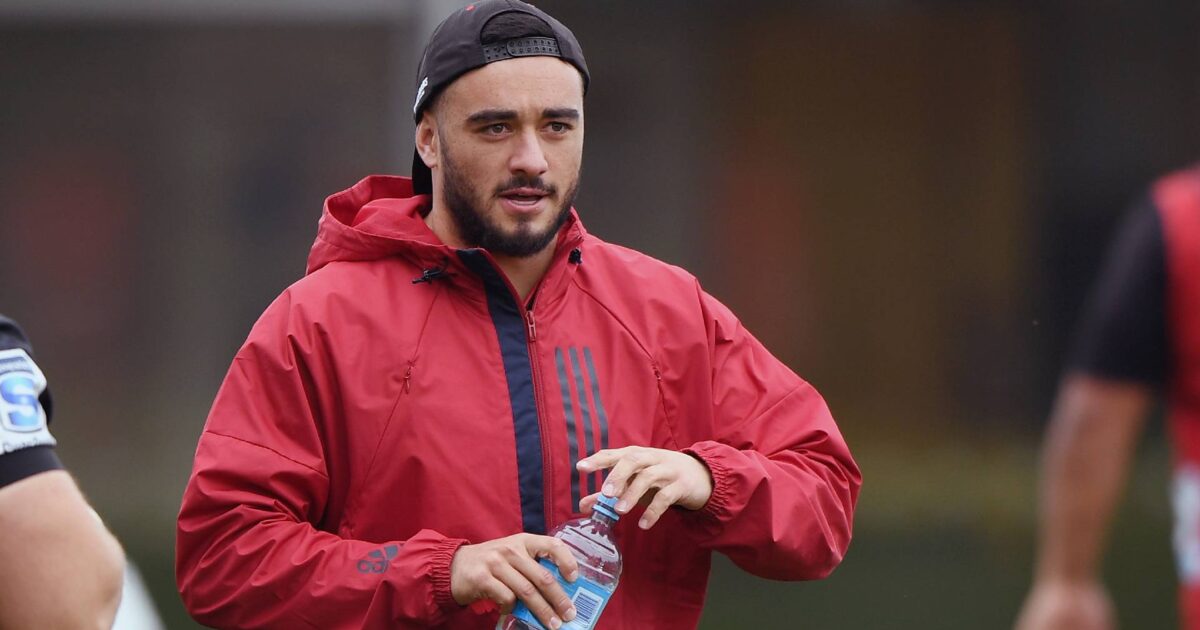Aotearoa Rugby Pod | Episode 2: Bryn Hall, James Parsons respond to sensational player poll results
The release of results from an anonymous player poll this week has shed the light on the real opinions of professional players about the state of the game in New Zealand.
The findings, which stem from a 40-question survey conducted by NZME‘s Sam Casey among “over 100 players” in Super Rugby Aotearoa, have been revealing to say the least.
Perhaps the biggest discovery was that almost half of the players polled disagreed with New Zealand Rugby’s decision to appoint Ian Foster as All Blacks head coach, while a further 26 percent were unhappy with his selection of assistants.
One of the other significant revelations throughout the week was that more than half of those surveyed believe that NZR isn’t doing enough to keep its talent from heading overseas.
In recent years, there have been many star players who have turned their back on playing for the All Blacks either prematurely or in the prime of their career to instead ply their trade for cashed up clubs in the UK, Europe and Japan.
The riches on offer in the Northern Hemisphere club game dwarfs that what of NZR and Super Rugby can provide, leaving the national union and the five Kiwi franchises with an uphill battle to keep hold of their players.
The concept of sabbaticals, whereby players re-commit themselves to the All Blacks and NZR on long-term deals with the option to take up a short-term contract abroad, usually Japan, has since become an oft-used clause in contract negotiations for New Zealand’s top stars.
The most recent example of a New Zealand star utilising a sabbatical clause is Blues playmaker Beauden Barrett, who will join Top League giants Suntory Sungoliath next year on a deal reportedly worth $1.5m before returning to New Zealand following Super Rugby.
Barrett last year inked a four-year contract with the Blues and NZR that will see him stay in New Zealand until 2023, but whether he would have stayed in his homeland is doubtful had the option to take a sabbatical overseas was unavailable.
https://www.instagram.com/p/CCJHB_hgvr3/?utm_source=ig_web_copy_link
Still, it seems the majority of New Zealand’s playing contingent believe there isn’t enough being done to maintain the nation’s playing talent.
However, Crusaders halfback Bryn Hall and Blues hooker James Parsons have leaped to NZR’s defence in their most recent appearance on the Aotearoa Rugby Pod.
Speaking ahead of his side’s top-of-the-table Super Rugby Aotearoa clash against Parsons’ Blues this weekend, Hall said NZR had struck a good balance between the development of young players and the retention of established stars through the evolution of sabbaticals.
“We’ve done pretty well, considering 10 years ago, I think the ability to have a sabbatical was foreign, it never happened, whereas now there’s an understanding in the market that you need to evolve and to keep our players here as well,” the three-time Super Rugby champion said.
“Bringing in the new stars, and being able to see those guys go away, and bring in a new cab of ranks – the guys we’ve been talking about, the new superstars coming through, the young fellas coming through – you’ve just got the opportunity to play because they’ve gone.
“I think we’ve got the balance really good. I think we can keep continuing to try and keep the older guys here, especially guys like Beaudy who are getting sabbaticals, but keep continuing to grow our young fellas, giving the opportunities to perform at a high level early in their careers.”
Parsons doubled down on his North Harbour teammate’s comments, highlighting that the lure of the All Blacks jersey is still evident despite the outflow of players abroad.
“I think we’re world-leading in terms of the sense that we’ve really kept the power of the All Black jersey whilst giving guys the opportunity to do sabbaticals or make some extra cash on the side, because we don’t want to get to a point where we’re selecting from overseas,” the two-test All Black said.
“Keeping that aura and the power of that All Black jersey is the key to success, and I think New Zealand Rugby’s got the balance of that right.”
Many have speculated that the COVID-19 outbreak could reduce the number of players who leave New Zealand for overseas contracts given the financial implications that have come with the pandemic.
Players and staff worldwide have been made redundant and forced to take pay cuts as a result of the sudden halt in games, but Hall said the way in which the situation has been handled in New Zealand has been “fantastic” compared to other nations.
“The alignment of the New Zealand [Rugby] Players’ Association, all the teams that were involved in having open-minded communication and trying to talk around solutions and everything like that,” he said.
“You hear about the Aussie boys and the amount of complaining that was happening over there.
“I think considering how we went through and the kind of leadership that we showed, with [Parsons] and the boys leading that, at the front of that, trying to see what the best for us was as players, I think we in New Zealand are in a pretty good stead of how we went through that COVID situation.”
























































